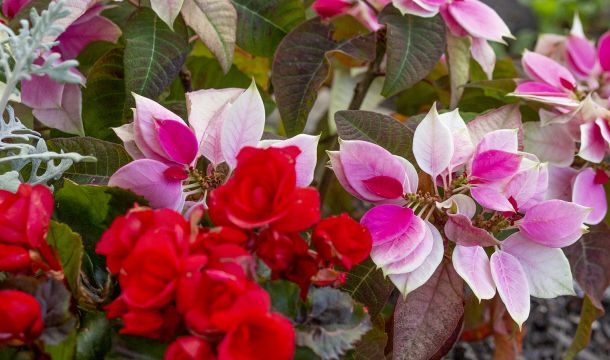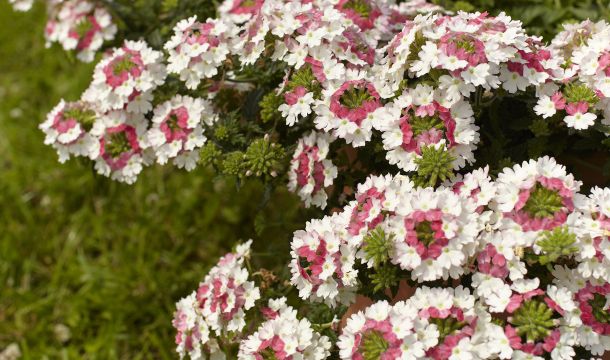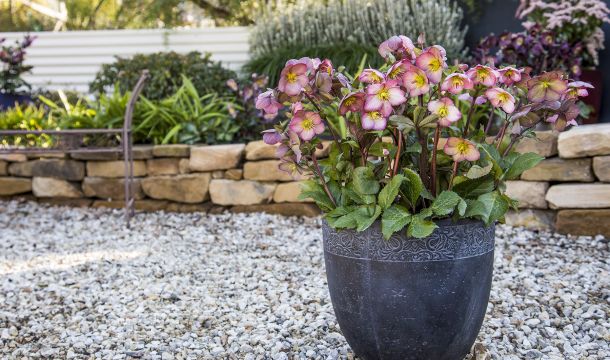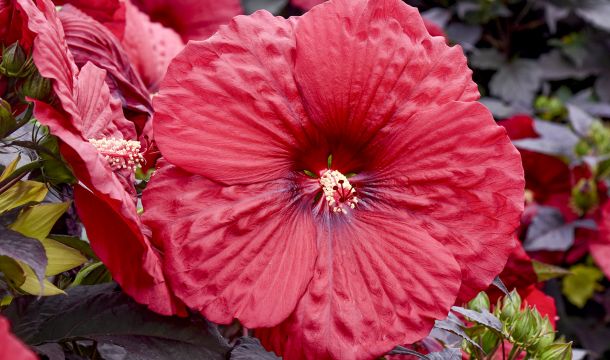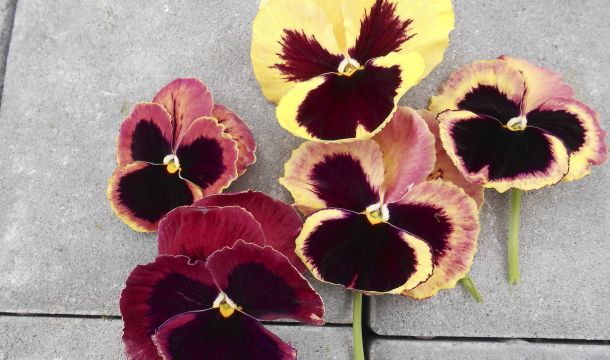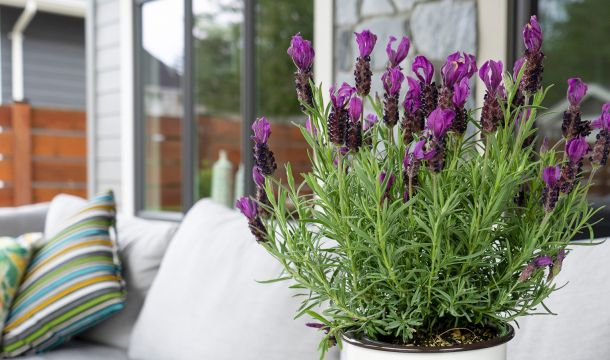Begin with the Waxes

If a young grower starts a finishing nursery, what should the first program be? My vote goes to the Wax Begonias because, economically and logistically, they cover the key bases first. Waxes are relentlessly reliable. In an industry full of risks they bring stability, and banks like this detail.
Landscapers will find you if you build a good program. They sign their contracts in the winter so which crop do they bet on, dicey or dependable? If the plant buyer never talks to the property manager, well, Waxes can do blind installs. They flower in sun, shade, rain, heat, and dry conditions all the way to frost. Only rocks are more durable.
DOT, parks, hospitality, sports, and plazas routinely have large vistas to fill with maintenance costs to avoid. Even in the retail channel, IGCs need a product they can recommend to young families with no experience as a gateway to other plants. Waxes deliver that first taste of success regardless of soil or skill.
Notice the dense color and flat display of 'Cocktail Gin' and 'Super Olympia Pink'.
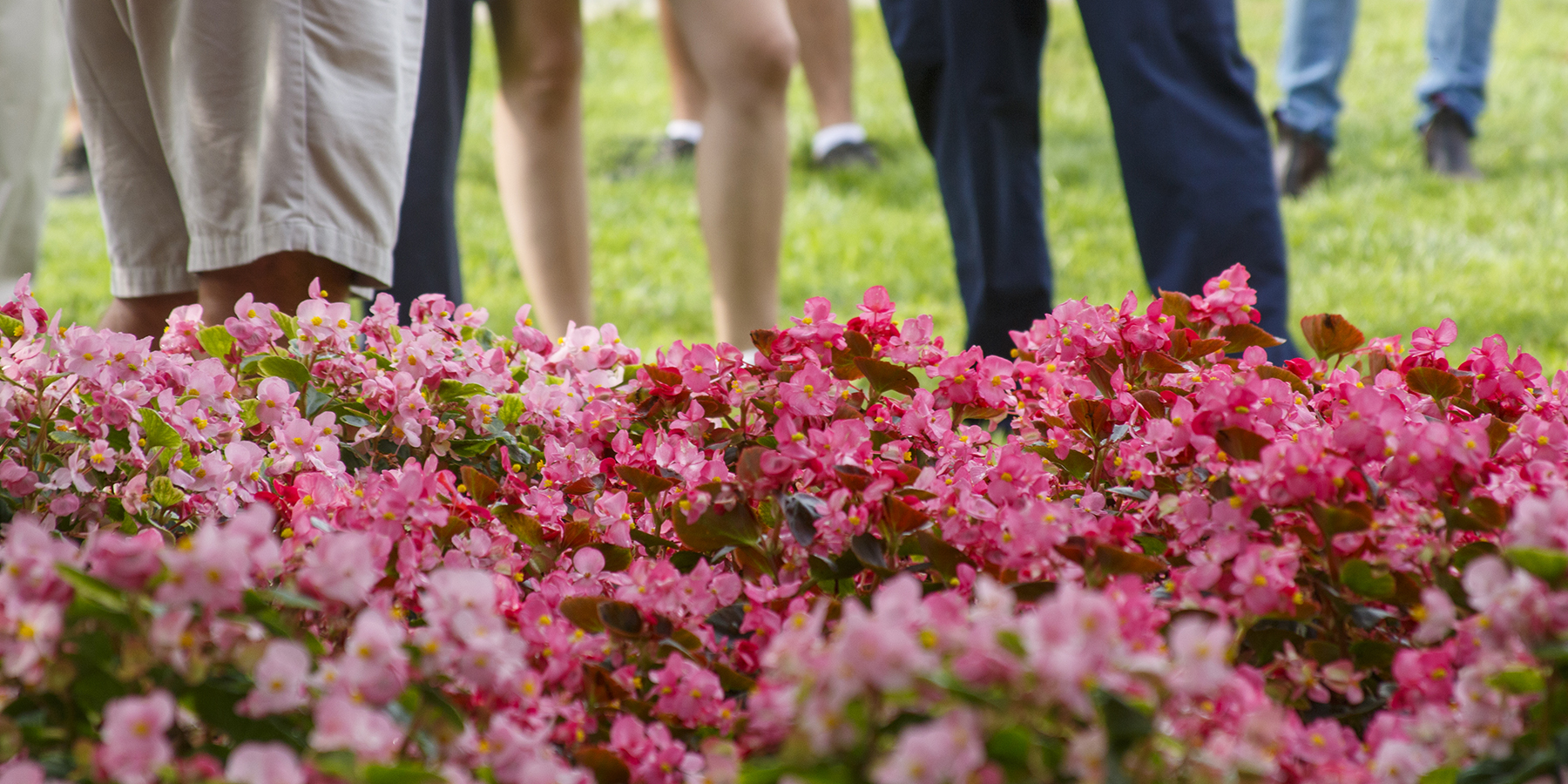
Start with the Duopoly
To build a good Wax Begonia program, I begin with the Cocktails and their green leaf partners, the Super Olympias. Inputs are widely available in the industry, and their protocols are well-known up and down the employment line. Lots of industry hires know the two.
This pair covers the full set of leaf and flower colors. Growth height is very consistent within the set, a strength of the series, so you can mix and match colors. Fiddle with the programming and plants will settle in a range of sizes from landscape trays to 6- and 8-inch pots.
The Bada series are gumdrop begonias that do their retail job well.
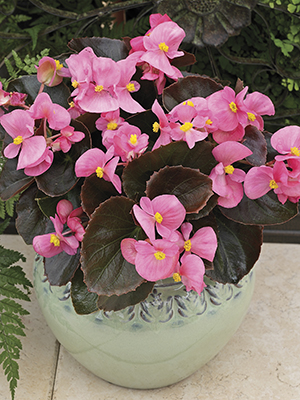 |
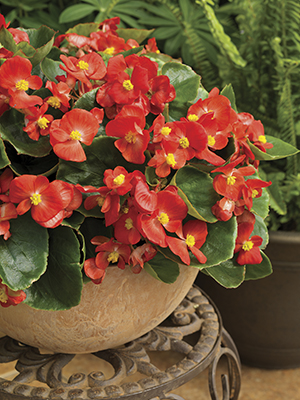 |
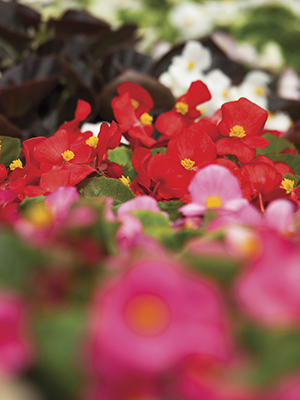 |
| 'Bada Boom Pink' |
'Bada Bing Scarlet' | Bada Bing Mix |
Retail with the Bada Series
If you have a strong focus on retail sales, especially packs and small pots, Bada Bing (kinda rhymes with "green") and Bada Boom are right-sized for that work. Even better, the two series offer a broader range of shades (light pink and scarlet) for the benches. Like the C/SO, the Bada heights are well balanced between the two leaf shades.
Color is held tight to the foliage to give the plant an overall gumdrop shape. This is where leaf and flower play off each other in a zebra sense. Visually, is it bronze, red, or both?
Each of the premium series have their signature move.
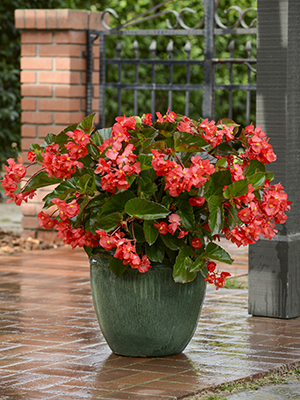 |
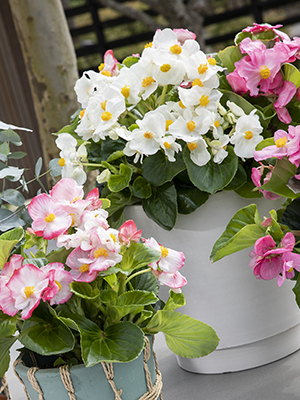 |
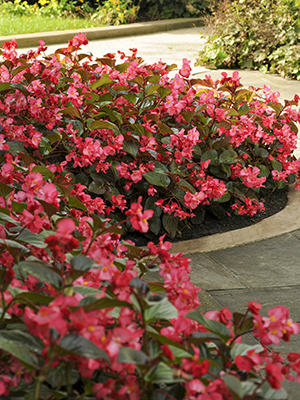 |
| Megawatt: Blooms to the side | TopHat: Blooms close in for decor | Whoppers: Blooms over the top |
Upgrade with Premiums
My next move deploys some premium series like the Whopper, Top Hat, and MegaWatt. These series take a specific feature of Waxes and push hard for extra impact. That revenue smack can be significant. For example, Whoppers, despite the name, can outsell the C-SOs in the 4-inch because the leaf and flower look more lush in the same pot size.
Whopper and Megawatt shine in mass plantings that plays off of their unique features. Flowers are usually held out above or away from the foliage, so the color appears as a layer above larger cupped leaves. In mass plantings, these Begonias fill the air above the soil. TopHats run in reverse; these are the intimate ones. Really big flowers sit on standard size leaves, so this series likes windowboxes, pottery and decor work where the flower pulls the weight.
Wax Begonias have their specialty series as well.
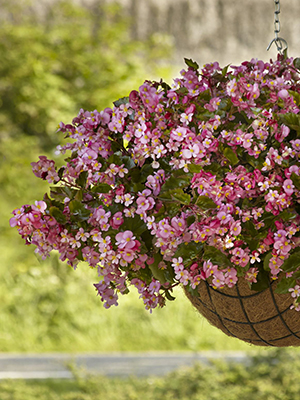 |
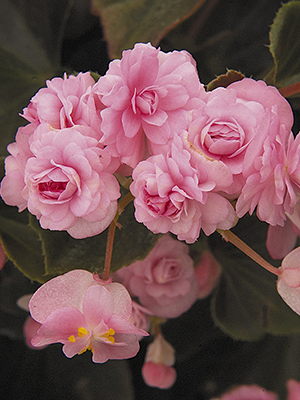 |
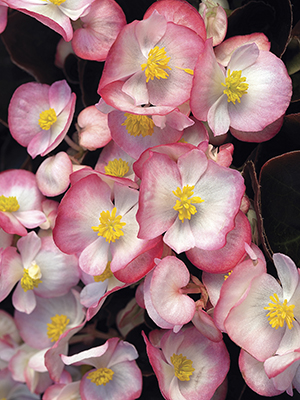 |
| 'Hula Pink' |
'Doublet Pink' | 'Bada Boom Rose Bicolor' |
Add Some Personality
Waxes get criticized for lack of creativity and choice, but alternatives do tweak the formula.
- The Doublet series: Miniature Reiger-like double blooms on a bronze Wax chassis. Perky enough for the gift market and looks good in that size.
- The Hula series: Spreading Begonias in the tabletop sense, not the draping/trailing sense. This series does two jobs: baskets and bedding. Hulas grow out, not up, so they cover the ground like a tablecloth. Since Waxes have strong stems, they hold their color horizontally like spreading pansies will.
- Bicolors: No series commits to this look because it is only available in red, but several pop it in as a unique color. The intensity of the effect isn’t the same. Cocktail Rum/Super Olympia Bicolor is variable in its strength, so the color pulses softly over a bed. The Bada bicolors are gentler, more like blushes. Hula’s bicolor is really, really red, so much so that I am tempted to call it "red with white eye."
A secret to the success of the Cocktails (Vodka shown)? A fantastic germination rate near 100%. This dependability ripples all the way down the supply chain.
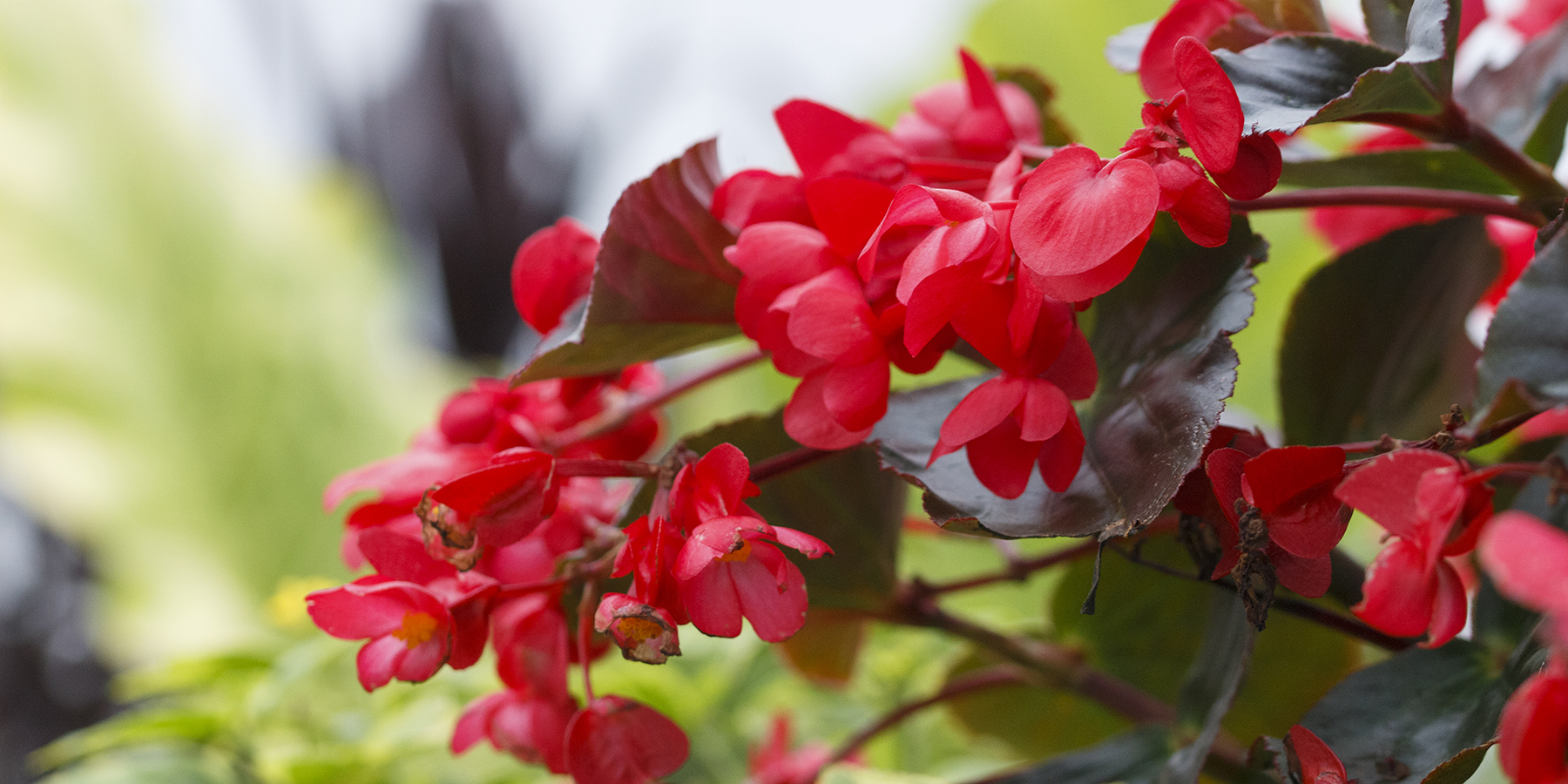
Some Planning Advice
Revenues between green leaf and bronze leaf are usually matched, so equal amounts of both make sense. However, the choice of flower color is highly local. Finishing nurseries who learn the tastes within their sales territories adjust their production numbers accordingly. For example, I can find that red-on-bronze will outsell the green leaf version, whereas white-on-green will beat the bronze version. Same place, different size. Flower-on-leaf revenues are rarely the same unless your production is underserving your market. Identifying your tentpole is half the money.
Zagging to the Finish
I use these guidelines when I look over a Wax Begonia program, but tailoring the details shapes the personality. Growers can take series into unexpected places with planning, patience, and passion. Good examples are the 11HB Waxes at Medary Acres in South Dakota, finished in-house. They build single color baskets from, of all things, Badas and Olympias.
Sarah reports that she uses ten plugs in paper baskets to create the final result. Some are planted over the top; some are placed into holes along the sides. They sell a wide range of unusual choices you don’t expect to see. Overall, their unusual basket program accounts for about one-third of the company’s revenues. Their web page is worth a look: https://medaryacres.com/our-plants/hanging-baskets/
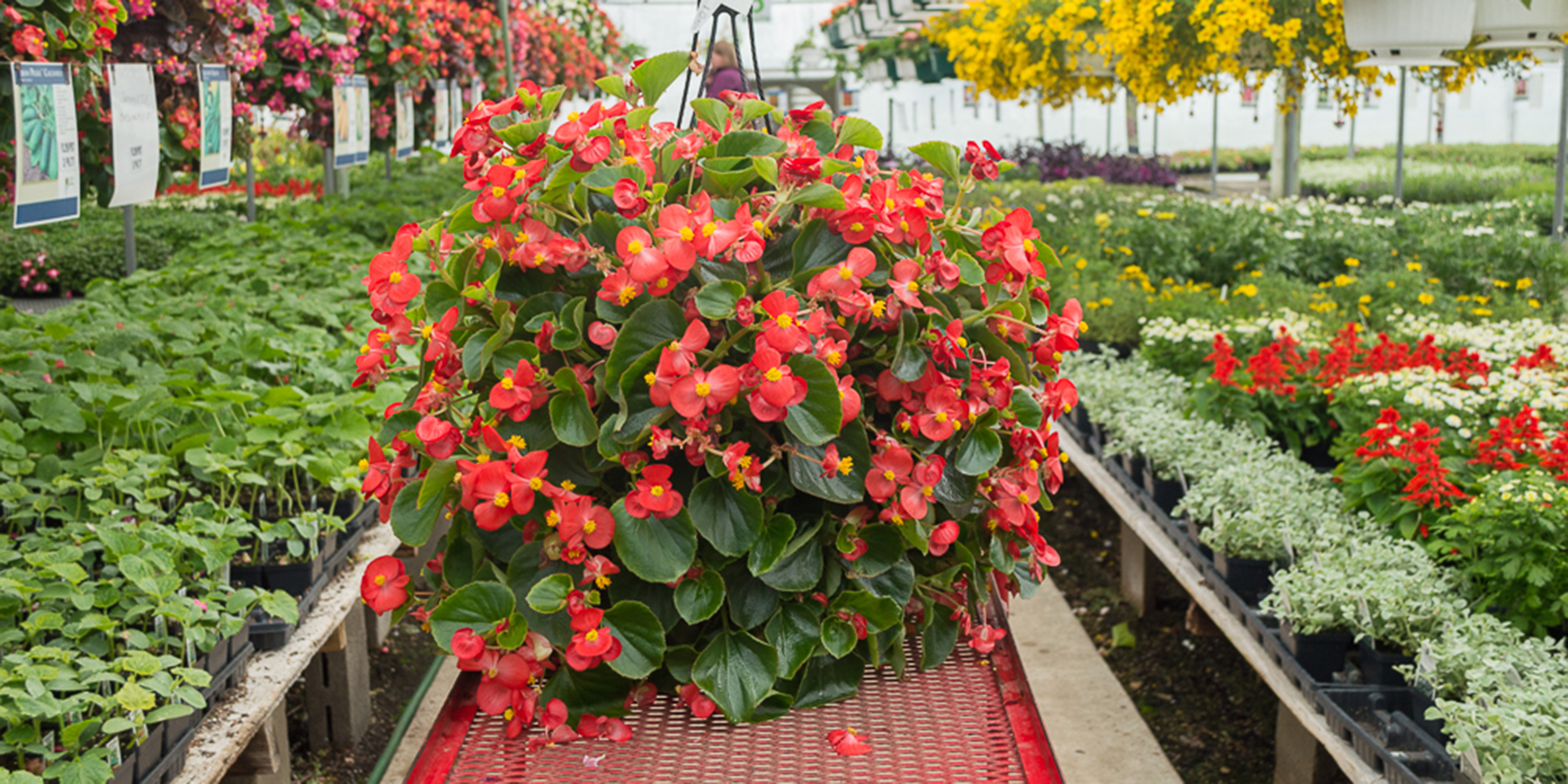
Popular Articles
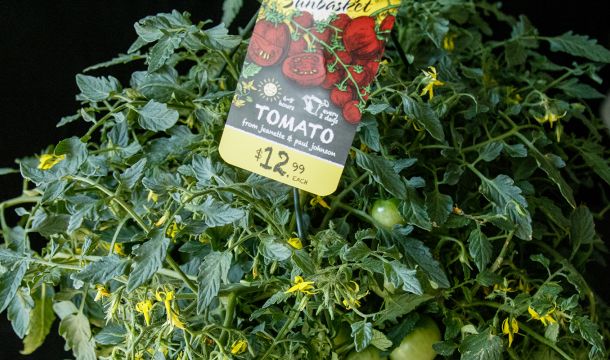
Trialing Edible Baskets
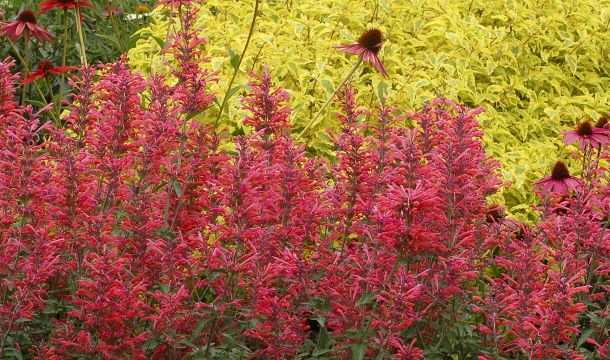
The Arthouse Expansion of Agastaches
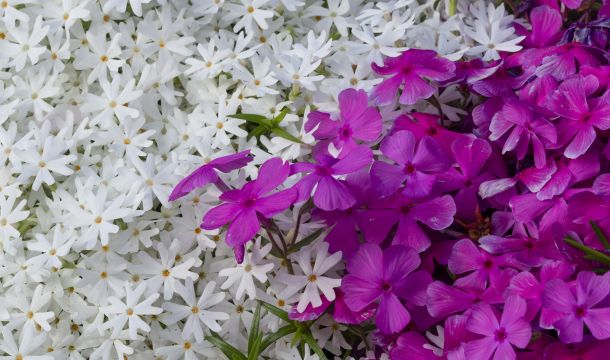
The Strengths Behind Phlox Subulata
